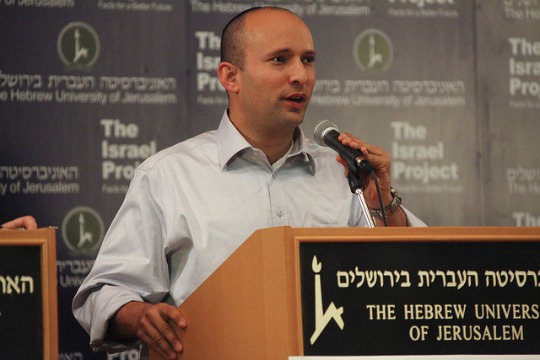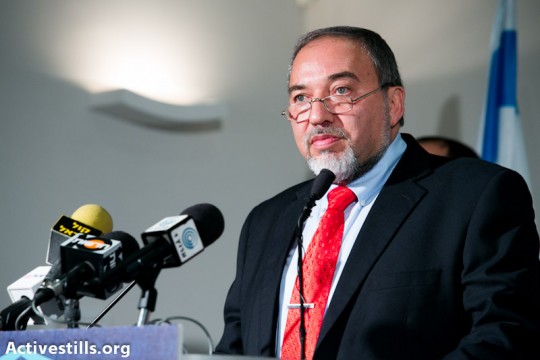Progressive forces in Israel need to be prepared: The Israeli Right has yet to exhaust all of its options for dealing with the Palestinians. The alternatives to Netanyahu’s status quo involve moves toward a Greater Israel and full segregation based on extreme nationalism and hatred.
By Mati Shemoelof (translated by Rotem Nir)
If there is one thing we should have learned from the past couple of months, it’s an appreciation of just how high the stakes are in Israel.
The Israeli Zionist Left is not capable of leading this country to serious change; change will only come when the Right betrays its own voters. The real political choice at our disposal, to an extent that one even exists, is between two similarly destructive right-wing ideologies.
One doesn’t need a time machine to look a few steps into the future and realize that the Israeli Right has yet to exhaust all of its options for dealing with the Palestinians. Operation Protective Edge was as much about revenge as it was an attempt to force a military solution, but the Right has options and plans that go far beyond the preservation of the status quo, which is what Netanyahu is all about.
One of the political factors that led to this war-that-wasn’t-really-a-war was a continued internal power struggle among the ruling elites, who constantly seek ways to take advantage of Netanyahu’s weakness and the fragility of his coalition. In other words, the war was not only a geo-political military action but also a continuation of an ongoing domestic political battle to unseat the Israeli prime minister.
What the Right has to offer
In this context we can point to two major ideologies emanating from the current leaders of the Right – ones that could potentially be adopted on a government level following Netanyahu’s downfall. Both ideologies are based on the old right-wing idea that Zionism can exist solely in a state of war and not in a peaceful reality; proper Jewish nationalism and its historical ideals can only be realized in the radical revolutionary blaze of a sword. The sentiment is encapsulated in a famous Jabotinsky line, found in a song of the Beitar movement: “Because silence is filth / Give up blood and soul / For the sake of the hidden beauty / To die or conquer the mount.” (full translation here)
The first of these right-wing ideologies is Naftali Bennett’s Greater Israel, which advocates for the complete annexation of a great part of the occupied territories, dominating the Palestinians, while marching towards Greater Israel. As a first step, Bennett suggests annexing Area C and giving Gaza over to Egypt. Areas A and B of the West Bank would remain under Palestinian Authority (PA) jurisdiction and control. However, in this program Israeli security forces would still dominate the PA in order to prevent Hamas from getting a foothold in or taking over PA-controlled areas of the West Bank.

Bennett doesn’t support a democratic single-state solution. He is willing to give the residents of Area C (about 50,000 Palestinians) Israeli citizenship, but the rest would have to do with living under the PA. Israel would invest in the construction of bypass roads so Palestinians could travel between Areas A and B without encountering checkpoints, and in infrastructure and joint industrial zones. To sum it up, it’s an effort at showing us what the vision of the Greater Land of Israel would look like, for both peoples.
The second right-wing idea is Avigdor Lieberman’s full segregation and separation program, which is an unprecedented departure to authoritarian and militaristic Realpolitik – not that Bennett’s plan avoids applying massive force to undemocratically control millions of people. Lieberman’s separation of nations plan goes beyond any two-state idea that precedes it. The plan is based on the idea of absolute separation between the Jewish and Arab populations and territories, including Israeli Palestinian citizens.
On January 5, 2014 Lieberman again brought up his plan, saying he would not support any peace plan that did not include such “an exchange” of populations by having the borders re-routed in a way that would offload to the Palestinian state some of the larger Arab towns and villages that have been inside Israel since 1948. Lieberman advocates extreme measures of control toward the Palestinians who will remain in Israel, ranging from separate communities to penalties for those who refuse to sign a loyalty oath to the Jewish state. His segregation is both internal and external.
Naturally, there will be considerable force required to implement such ideas, if only in anticipation of the response they might generate among the Palestinian population. It’s not even clear to what degree Lieberman supports an independent Palestinian state. For him, the two-state solution is a necessary element in his scheme of segregation, not a goal in and of itself.
There is something elusive about Bennett, and even more so about Lieberman. Some people may be enchanted when the pair talks about actually solving the Palestinian issue and not just prolonging the occupation, as Netanyahu does. But make no mistake: Neither of their plans have anything to do with ensuring peace or democracy; both of them deliberately ride scary waves of hatred and nationalism in their quest for power. Both of their alternatives represent dangerous forces – ones that should neither be accepted nor legitimized. The Right hasn’t put in its last word on Gaza, and progressive forces must be prepared.
Mati Shemoelof is a writer. His first storybook was published by Zmora Bitan Publishers. This post was first published in Hebrew on Haokets.
Related:
One- or two-state solution? The answer is both (or neither)
Israeli right-wing politician: ‘Annex territories, grant Palestinians citizenship’
Lieberman: Citizenship annulment is a condition for peace



